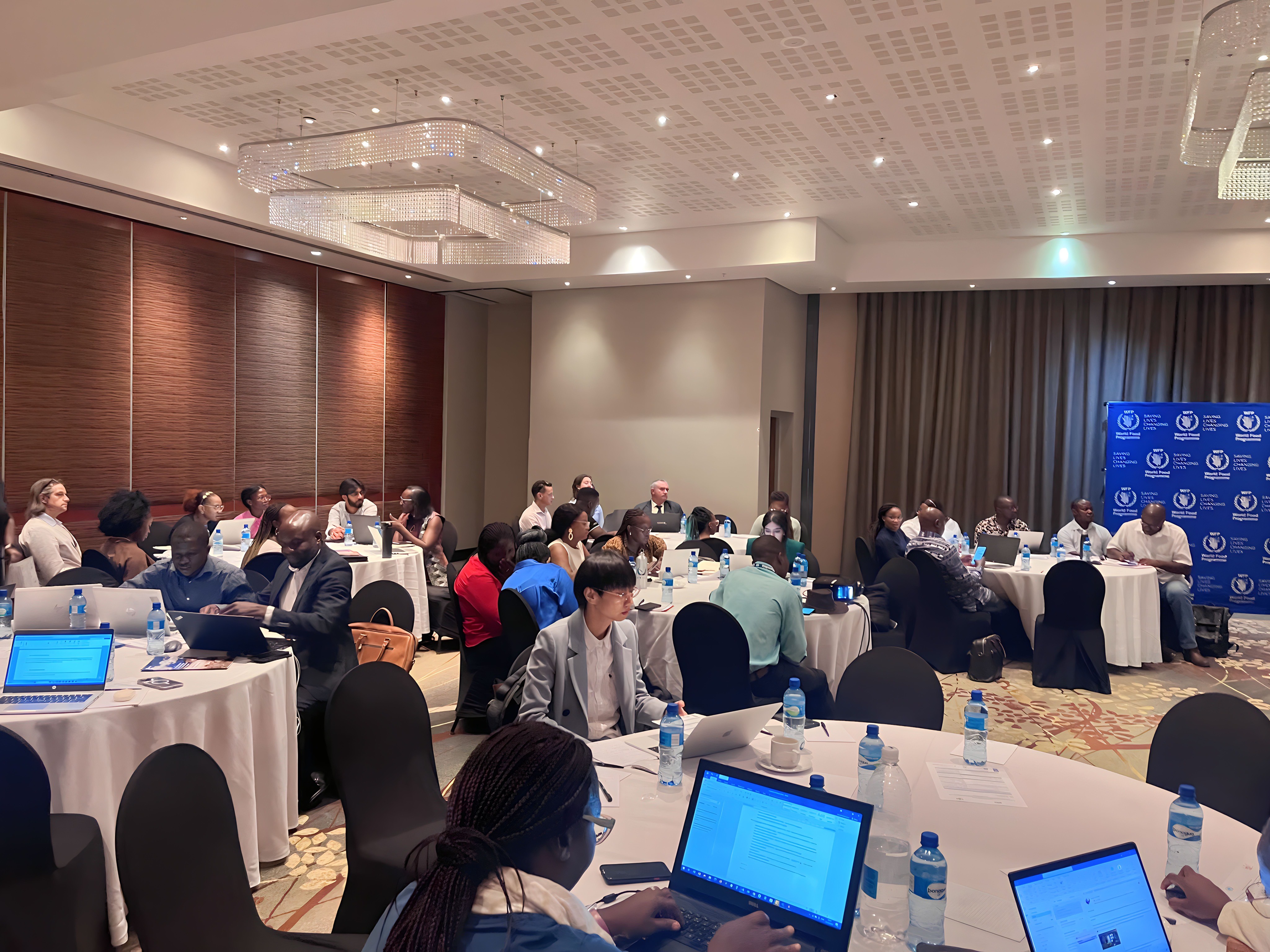
Participants at the Inception workshop
UNDP Namibia Country Office, in partnership with United Nations Educational, Scientific and Cultural Organization (UNESCO), the World Food Programme and The Commonwealth Climate Finance Access Hub, the Office of the Prime Minister (OPM) and the Ministry of Environment, Forestry and Tourism (MEFT), held an inception workshop on the preparation for the Green Climate Fund (GCF) Project "Strengthening Climate Information and Early Warning Systems for Enhanced Adaptation Planning and Resilience in Namibia" (SANIED) on 31 October 2023 at Hilton Hotel in Windhoek. The initiative will enhance adaptation planning, improve resilience, and address the lack of reliable climate information, skilled personnel, and climate risk management options in the country. Additionally, this project aligns with Namibia's ambition to build resilience, counteract climate-induced vulnerabilities, and support its green recovery from the COVID-19 pandemic. The workshop aimed to lay a strong foundation for the project proposal by aligning it with Namibia's needs and priorities, fostering stakeholder engagement, and facilitating successful resource mobilization. During the workshop, key stakeholders, including government agencies, community representatives, non-governmental organizations, academia, private sector entities, and international partners were engaged with additional stakeholders to be identified to ensure country ownership and effective implementation of the project's objectives.
Mr. Petrus Muteyauli, Deputy Director in the Multilateral Environmental Conventions, Department of Environmental Affairs and Forestry in MEFT and National Designated Authority, in his welcoming remarks, emphasized that climate action is a crucial developmental issue that can't be ignored.

Mr. Petrus Muteyauli, Deputy Director in the Multilateral Environmental Conventions, Department of Environmental Affairs and Forestry in MEFT and National Designated Authority
"We strongly believe that our adaption goal of building a climate resilient Namibia by 2030 can best be achieved if we put all the necessary instruments such as technical and policy instruments that need to be in place to build a climate resilient country by 2030".
Early warning information is vital for effective planning and implementation of climate action at regional, national, and local levels. This initiative will help Namibia and its communities to better prepare for national disasters and climate-induced events. In his opening remarks, Mr. Paulus Ashili, Deputy Director for Policy Analysis and Coordination in the Directorate of Disaster Risk Management in the OPM, said that climate change models have predicted that climate-induced hazards are expected to be intense in Namibia, with frequent floods and droughts.

Mr. Paulus Ashili, Deputy Director for Policy Analysis and Coordination in the Directorate of Disaster Risk Management in the Office of the Prime Minister
"As a country, we have to prepare ourselves, especially in terms of early warning systems; so that real-time information can reach our communities that are highly vulnerable to the impacts of climate change".
The Office of the Prime Minister (OPM), as the highest coordinating office for disaster in the country, is pleased to associate itself with this work and is looking forward to ensuring that this proposal is submitted and approved by the Green Climate Fund (GEF).
Suppose there could be early warning systems in place. In that case, the response will be done better, and resources spent in disaster can be channelled to other periodic areas such as education and agriculture. Namibia is going through a severe drought where 695,000 are estimated to be food insecure, translating to 1720 households that are being fed by the Government, which is a lot of money. If we strengthen some systems to assist in responding, money can be saved and deployed to other sectors. OPM also shared two important documents, namely, the Resilience strategy and national risk profile, which were recently finalized and will guide the Government in placing developmental plans very well.
Uazamo Kaura, Programme Specialist at the UNDP Country Office, presented on the SANIED Project Preparation background and highlighted UNDP's role in assisting the Government of Namibia and the development of the project proposal for funding towards addressing resilience strategy. Other presenters from UNESCO and national consultants also presented on different aspects during the workshop.
Namibia, one of the driest countries in sub-Saharan Africa, faces increasing climate risks, including droughts, floods, water scarcity, extreme heat, and wildfires. These events have intensified and are significantly impacting rural communities and farmers who rely on rain-fed agriculture. Poor soils, water scarcity, and a dependence on rain-fed agriculture further exacerbate Namibia's vulnerability. As the agriculture sector contributes significantly to the country's GDP and employs over 70% of the population, changing precipitation patterns pose a serious threat to freshwater availability, agricultural yields, and land access. Inadequate climate information and fragmented early warning services hinder effective adaptation planning.
Acknowledging these challenges, the Government of the Republic of Namibia (GRN) has sought support from the UN Namibia Country Team and the Commonwealth Secretariat to secure grant financing from the Green Climate Fund (GCF) for the project SANIED. The initiative will enhance adaptation planning, improve resilience, and address the lack of reliable climate information, skilled personnel, and climate risk management options in the country. Additionally, this project aligns with Namibia's ambition to build resilience, counteract climate-induced vulnerabilities, and support its green recovery from the COVID-19 pandemic.
In the future, there will be meetings organized in different regions to father input from various stakeholders. These consultations will include general public, private organizations, and development partners with the purpose of ensuring a thorough and comprehensive process.

Mr. Paulus Ashili, Deputy Director for Policy Analysis and Coordination in the Directorate of Disaster Risk Management in the Office of the Prime Minister

 Locations
Locations